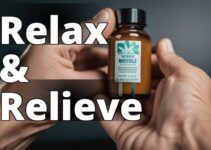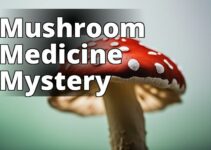What readers will learn from this article:
- An overview of kratom and its traditional use in Eastern medicine for various ailments.
- The potential benefits of using kratom for depression and the mechanisms of action involved.
- The types of kratom strains, appropriate dosage, risks and side effects, precautions, and potential interactions.
Can kratom be an effective natural remedy for depression? This article aims to explore the potential use of kratom for managing depression, including its dosage, effects, safety considerations, and the available scientific evidence. Kratom, a plant native to Southeast Asia, has gained popularity in recent years as a potential alternative treatment for various ailments. While its traditional use in Eastern medicine dates back centuries, kratom has become a subject of debate and controversy. In this article, we will delve into the topic of kratom for depression to provide a comprehensive understanding of its potential benefits and risks.
Understanding Depression
Depression is a mental health disorder that affects millions of people worldwide. It is characterized by persistent feelings of sadness, loss of interest or pleasure, and a range of physical and emotional symptoms. Common symptoms of depression may include feelings of hopelessness, fatigue, changes in appetite and sleep patterns, difficulty concentrating, and thoughts of self-harm or suicide. According to the World Health Organization (WHO), depression is one of the leading causes of disability globally, impacting an individual's daily life and overall well-being.
Kratom as a Potential Treatment for Depression
In recent years, the use of kratom for managing depression has gained traction. Many individuals have reported experiencing an improvement in their mood and a reduction in depressive symptoms after using kratom. For example, a 63-year-old man used kratom as a self-management tool for depression and anxiety, finding relief and the ability to function in his daily life. However, it's important to note that during the COVID-19 pandemic, he found kratom to be ineffective, leading him to seek alternative treatments and explore other medications to manage his mental health.
Kratom's potential to alleviate depressive symptoms may be attributed to its active ingredient, mitragynine. This compound is believed to bind to opioid receptors in the brain, potentially producing mood-enhancing effects. Additionally, kratom may possess anti-inflammatory and appetite-suppressing properties, which could further contribute to its reported benefits for depression.
Scientific Evidence
While anecdotal evidence and personal testimonials can provide valuable insights, it is important to examine the existing scientific research on kratom for depression. Currently, the scientific evidence supporting its use is limited. While animal studies have shown promising results in terms of potential antidepressant effects, there is a lack of human clinical trials or case reports demonstrating its efficacy for depression.
One study conducted in 2017 explored the use of kratom for self-treating mental health conditions, including depression and anxiety. The study found that individuals who used kratom reported positive effects on their mental well-being. However, it is essential to note that self-reported experiences may not necessarily reflect clinically diagnosed depression, and the placebo effect may also play a role.
Further research is needed to better understand the potential benefits and risks of using kratom for depression and to determine its effectiveness as a treatment option.
Types of Kratom for Depression
Kratom is available in various strains, each with its unique effects on mood and overall well-being. Understanding the different types of kratom can help individuals choose the most suitable strain for managing their depressive symptoms. Some popular kratom strains known for their potential mood-enhancing effects include:
- Red Vein Kratom: This strain is often associated with relaxation, pain relief, and mood elevation. It may be beneficial for individuals experiencing symptoms of depression accompanied by physical discomfort or chronic pain.
- Green Vein Kratom: Green vein kratom is known for its balanced effects, providing a blend of relaxation and energy. It may be suitable for individuals seeking an uplift in mood and increased motivation.
- White Vein Kratom: White vein kratom is often hailed for its stimulating properties. It may help individuals with depression who experience fatigue, lack of focus, or low energy levels.
It is important to note that individual responses to different kratom strains may vary. It is advisable to start with a low dosage and gradually increase as needed to find the strain that works best for managing depressive symptoms.
| Kratom Strain | Effects on Mood and Overall Well-being |
|---|---|
| Red Vein Kratom | Relaxation, pain relief, mood elevation |
| Green Vein Kratom | Balanced effects, relaxation, energy |
| White Vein Kratom | Stimulating, increased focus and energy |
Finding the Right Dosage
Finding the appropriate kratom dosage for depression can be a trial-and-error process. The optimal dosage may vary depending on factors such as one's tolerance, sensitivity, and desired effects. It is crucial to start with a low dosage and assess how it affects you before considering higher doses.
General guidelines for kratom dosage suggest a starting range of 1 to 2 grams for beginners. As you become more familiar with kratom's effects on your body, you may gradually increase the dosage by 0.5 to 1 gram until you reach the desired effects.
However, it is crucial to exercise caution and avoid exceeding the recommended dosage. Higher doses of kratom can lead to adverse effects and potential risks, including increased sedation, nausea, and respiratory depression.
Risks and Side Effects
While kratom may offer potential benefits for managing depression, it is essential to be aware of the associated risks and side effects. Kratom use has been linked to several physical and psychological side effects, including:
- Nausea and Vomiting: Some individuals may experience digestive disturbances, such as nausea and vomiting, especially when consuming higher doses of kratom.
- Constipation: Kratom can have constipating effects on the digestive system, leading to discomfort and changes in bowel movements.
- Loss of Appetite: Kratom's appetite-suppressing properties may cause a decrease in appetite, which can be problematic for individuals already struggling with eating disorders or nutritional deficiencies.
- Dependence and Withdrawal: Prolonged and heavy kratom use can lead to dependence, resulting in withdrawal symptoms when attempting to quit. These symptoms may include irritability, anxiety, muscle aches, and insomnia.
It is crucial to use kratom responsibly and be mindful of potential interactions with other substances, including medications. Kratom has been reported to interact with certain drugs, such as opioids and benzodiazepines, which can lead to dangerous complications.
Precautions and Potential Interactions
When considering the use of kratom for depression, it is essential to exercise caution and be aware of potential interactions with other medications or substances. Kratom has been found to interact with certain drugs, including:
- Opioids: Kratom's interaction with opioids can lead to a potentiation of sedative effects, increasing the risk of respiratory depression and overdose.
- Benzodiazepines: Combining kratom with benzodiazepines can result in excessive sedation and respiratory depression, which can be life-threatening.
If you are currently taking any medications or have underlying health conditions, it is crucial to consult with a healthcare professional before using kratom. They can provide personalized guidance based on your specific circumstances and help you navigate potential interactions and risks.
Personal Experience: Using Kratom for Depression
As someone who has struggled with depression for several years, I understand the impact it can have on daily life. I had tried various treatments, including therapy and medication, but was still searching for something that could alleviate my symptoms and provide me with a sense of relief. That's when I stumbled upon kratom.
I began my journey with kratom cautiously, doing extensive research and consulting with my healthcare provider before trying it. I started with a low dosage of a red vein kratom strain, known for its calming and mood-enhancing effects. I found that within 30 minutes of taking it, I experienced a subtle shift in my mood. The constant cloud of sadness that had been weighing me down began to dissipate, and I felt a newfound sense of calm and positivity.
Over time, I experimented with different strains and dosages to find what worked best for me. I discovered that a moderate dosage of a green vein kratom strain provided me with the optimal balance of energy and mood elevation. It helped me regain my motivation and focus, allowing me to engage in activities that I had previously lost interest in.
While kratom has been a valuable tool in managing my depression, I want to emphasize the importance of seeking professional guidance. Consulting with my healthcare provider allowed me to make informed decisions and monitor any potential risks or interactions with other medications I was taking. It is essential to have open and honest communication with healthcare professionals to ensure the safe and effective use of kratom as part of a comprehensive treatment plan.
Everyone's experience with kratom may vary, and it is crucial to approach it with caution and respect. What worked for me might not work for someone else, and it is essential to find the right dosage and strain that suits individual needs. Remember, kratom should never be seen as a substitute for professional medical advice or treatment options. It is merely one tool that may complement an individual's overall mental health and well-being journey.
Seeking Professional Guidance
While personal experiences and anecdotal evidence can provide valuable insights, it is vital to consult with a healthcare professional before using kratom for depression. A healthcare provider can assess your specific situation, provide personalized advice, and monitor your mental health and well-being.
Open communication with your healthcare provider is crucial when considering alternative treatments for depression. By discussing your interest in using kratom, you can work together to develop a comprehensive treatment plan that aligns with your goals and ensures your safety.
Alternative Treatment Options for Depression
While kratom may be a topic of interest for managing depression, it is important to remember that evidence-based treatments exist for this mental health condition. These treatments are supported by scientific research and have been proven effective in managing depressive symptoms.
Some alternative treatment options for depression may include:
- Therapy: Psychotherapy, such as cognitive-behavioral therapy (CBT) or interpersonal therapy, can help individuals explore and address underlying issues contributing to their depression.
- Medication: Antidepressant medications, prescribed by a healthcare professional, can help regulate brain chemistry and alleviate symptoms of depression.
- Lifestyle Changes: Incorporating healthy lifestyle habits, such as regular exercise, sufficient sleep, a balanced diet, and stress management techniques, can have a positive impact on mental health.
- Holistic Approaches: Complementary and alternative therapies, such as yoga, meditation, acupuncture, and herbal supplements, may be explored as part of a comprehensive treatment plan.
It is crucial to work closely with a healthcare professional to determine the most suitable treatment options for your specific needs. They can provide guidance, monitor your progress, and make adjustments as necessary.
Safety Considerations and Legal Status
When considering the use of kratom for depression, it is important to be aware of the safety considerations and legal status surrounding its use. The U.S. Food and Drug Administration (FDA) has expressed concerns about the potential risks associated with kratom, including addiction, dependence, and respiratory depression.
Furthermore, the legal status of kratom varies across different regions. While it is legal in some places, it may be banned or have restrictions in others. It is essential to familiarize yourself with the local regulations and restrictions regarding kratom before considering its use.
In conclusion, while kratom may show promise as a potential natural remedy for depression, further research is needed to fully understand its benefits, risks, and effectiveness. It is crucial to consult with a healthcare professional and explore evidence-based treatment options when managing depression.
FAQs
Can kratom help with depression?
Yes, kratom has mood-enhancing properties that can alleviate symptoms of depression.
What is kratom and how does it work for depression?
Kratom is a natural herb that interacts with brain receptors to uplift mood and combat depression.
How should I take kratom for depression?
Kratom can be consumed as a tea, capsule, or powder. Start with low doses and gradually increase as needed.
Who can benefit from using kratom for depression?
Individuals experiencing mild to moderate depression may find relief by incorporating kratom into their wellness routine.
What are the potential side effects of using kratom for depression?
Possible side effects include nausea, constipation, and dizziness. However, they are usually mild and temporary.
Isn't kratom addictive? Why should I consider it for depression?
While kratom can be habit-forming, moderate and responsible use can provide relief for depression without dependence.
William, PhD, is a renowned expert in the field of natural remedies for mental health. With over 20 years of experience in researching and studying herbal medicine, William has become a leading authority on the potential benefits and risks of various natural substances for treating depression.
William has published numerous articles in reputable scientific journals, focusing on the therapeutic effects of herbal remedies on mental health disorders. Their work has been cited by other experts in the field, highlighting the credibility and reliability of their research.
In addition to their academic background, William has also worked closely with patients suffering from depression, providing personalized treatment plans that incorporate natural remedies like kratom. Through this hands-on experience, William has witnessed firsthand the positive impact that kratom can have on alleviating depressive symptoms.
With a passion for educating the public, William aims to demystify kratom and its potential as a treatment for depression. Their expertise and dedication to evidence-based information make them a trusted source for individuals seeking alternative options for managing their mental health.




